Advanced electromyography testing that pinpoints exactly what’s causing your numbness, tingling, or muscle weakness.
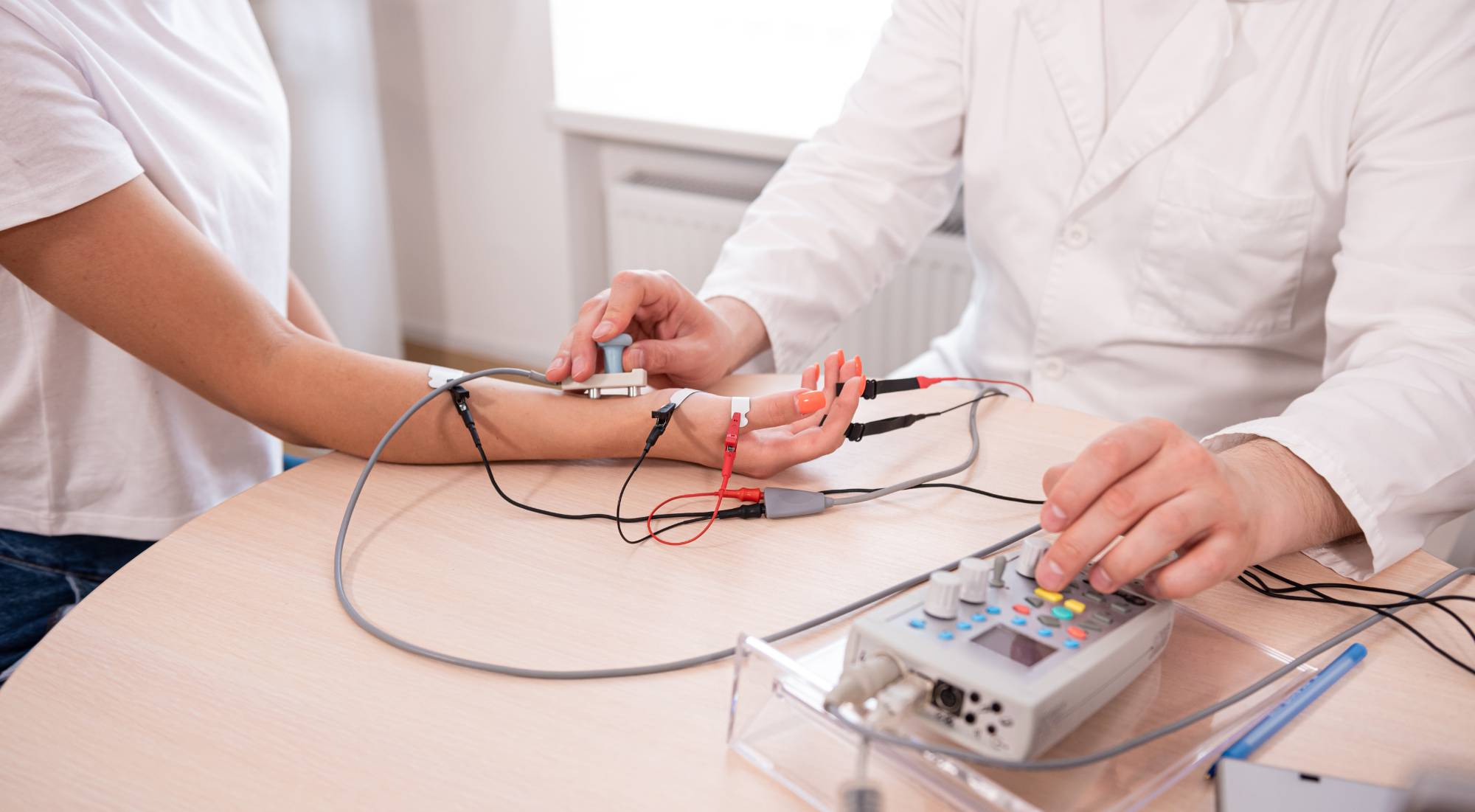
Reviews
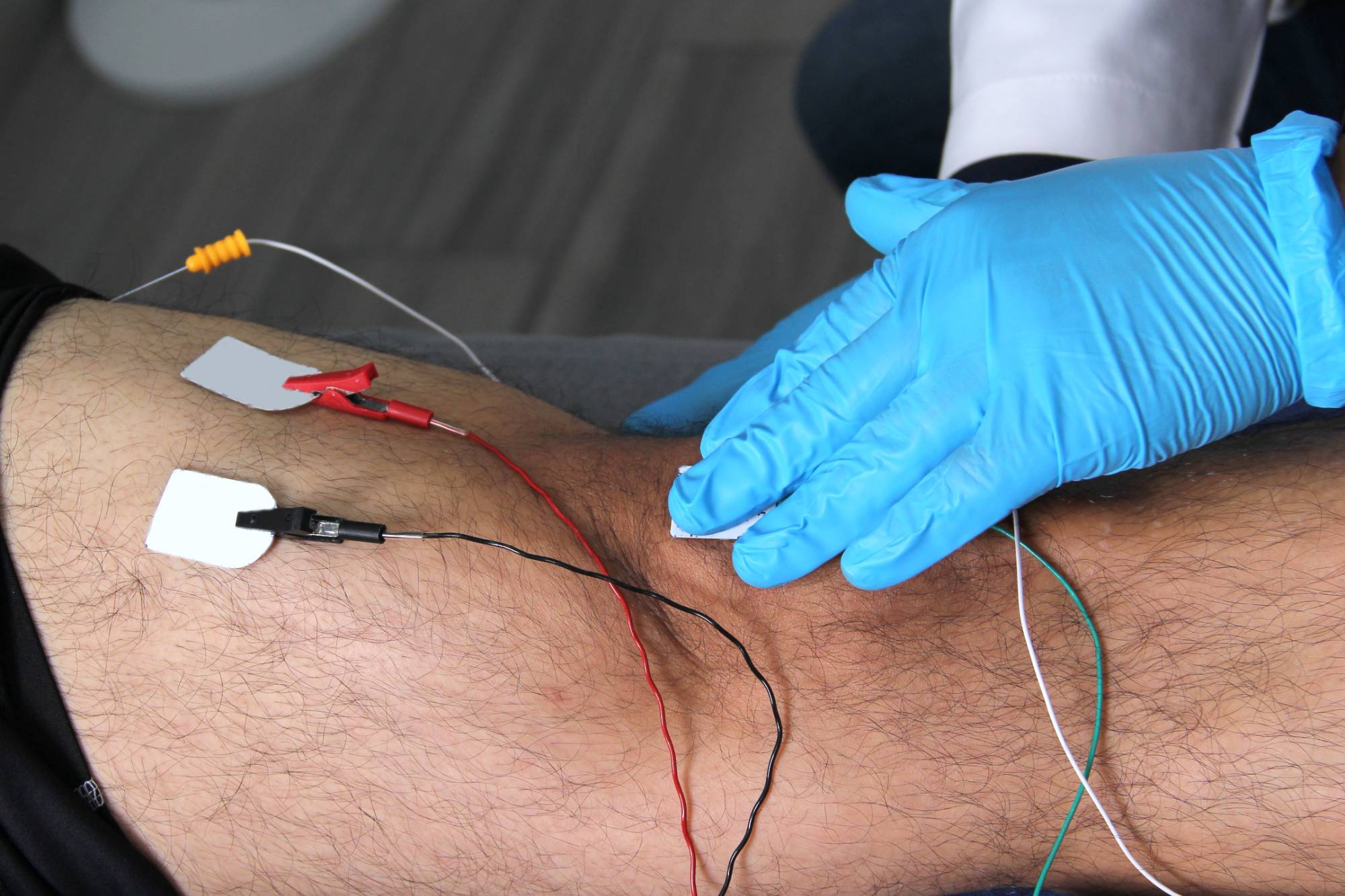
You’ve been dealing with unexplained symptoms long enough. That tingling in your hands that keeps you awake. The muscle weakness that makes simple tasks frustrating. The numbness that has you worried about what’s really going on.
EMG testing gives you concrete answers. Instead of guessing about nerve damage or muscle disorders, you get precise measurements of how your nerves and muscles actually function. This isn’t just another test – it’s the diagnostic tool that helps determine if you’re dealing with carpal tunnel syndrome, diabetic neuropathy, herniated disc complications, or other neuromuscular conditions.
When you know exactly what’s happening, you can make informed decisions about treatment. No more wondering if your symptoms will get worse or if there’s something serious you’re missing.
We’ve been serving Little Neck and the greater Queens area with specialized diagnostic testing for years. Our team understands that when you’re dealing with nerve-related symptoms, you need answers from professionals who’ve seen it all before.
We focus specifically on spine and nerve disorders, which means every EMG test is performed by specialists who interpret these results daily. This isn’t a general practice trying to handle nerve testing on the side – we’re a dedicated team that knows the difference between normal variations and significant findings.
Located conveniently in Little Neck, we’ve built relationships with referring physicians throughout Queens, ensuring your results get back to your doctor quickly and your care stays coordinated.
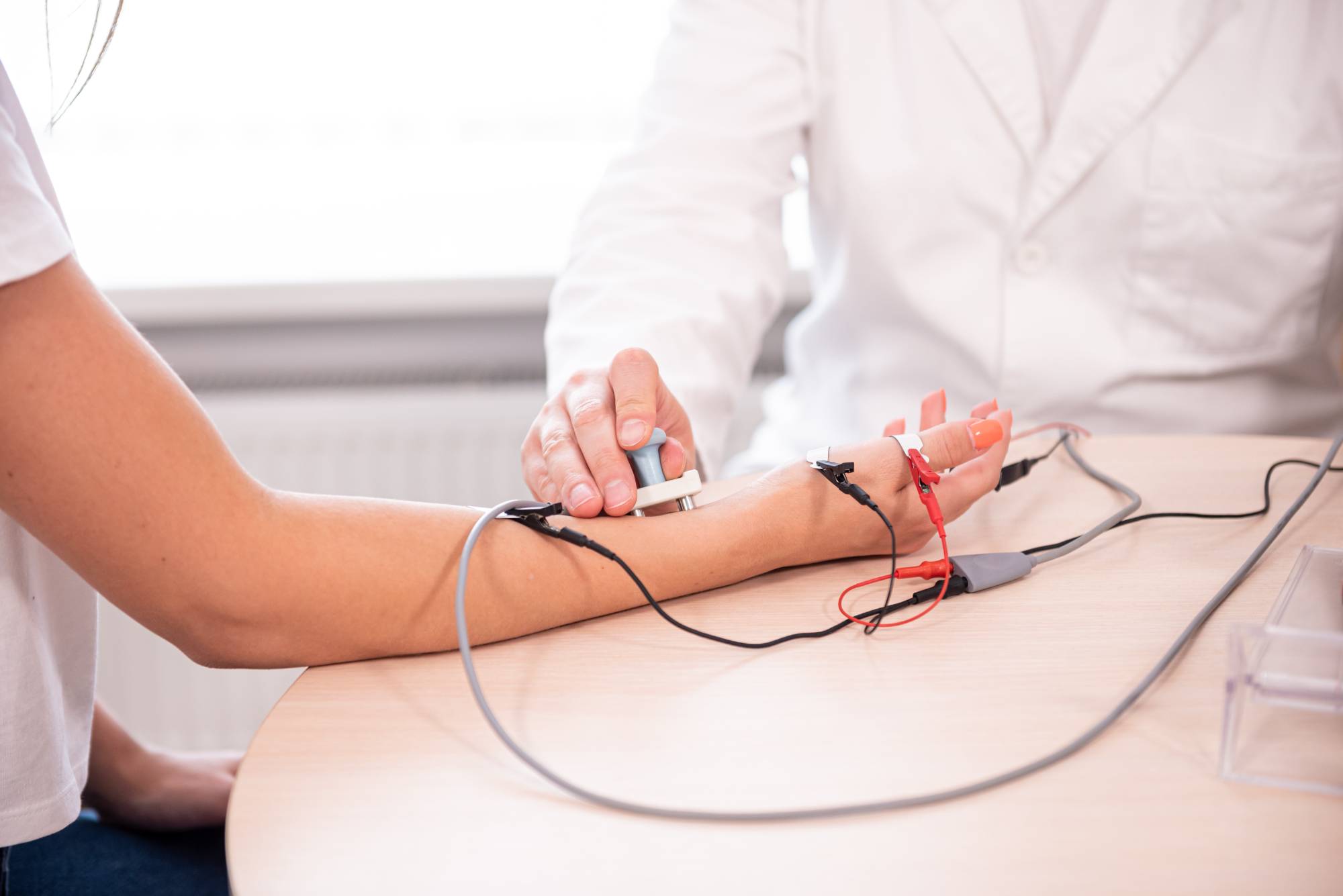
Our EMG testing process combines two complementary studies to give a complete picture of your nerve and muscle function. First, the nerve conduction study measures how well electrical signals travel through your nerves. Small electrodes placed on your skin deliver mild electrical pulses while sensors measure the speed and strength of nerve responses.
Next, the electromyography portion uses a thin needle electrode to measure electrical activity directly in your muscles. This shows whether muscle weakness comes from nerve problems or muscle disorders themselves. The needle insertion feels similar to getting blood drawn and provides crucial information about muscle health.
Most EMG testing takes 30-60 minutes depending on how many areas need evaluation. You’ll get preliminary results immediately, with a detailed report sent to your referring physician within 24-48 hours. The testing is done right here in Little Neck, so you don’t need to travel to Manhattan or wait weeks for an appointment.
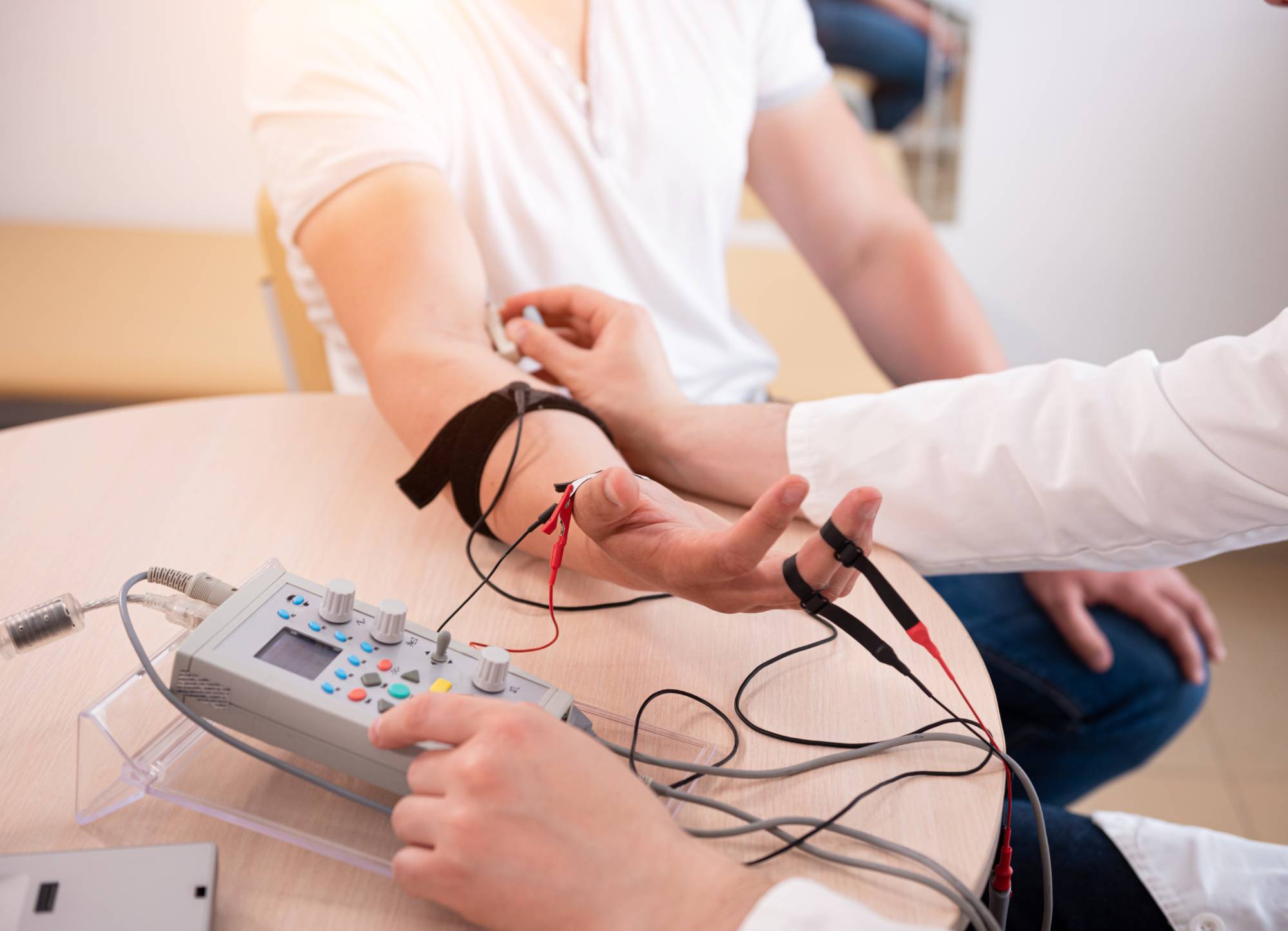
Ready to get started?
Your EMG testing includes both nerve conduction studies and needle electromyography to evaluate different aspects of neuromuscular function. The nerve conduction portion tests sensory nerves that carry feeling sensations and motor nerves that control muscle movement. This helps identify conditions like carpal tunnel syndrome, ulnar neuropathy, or diabetic nerve damage.
The needle EMG portion examines muscle electrical activity at rest and during contraction. This reveals whether muscle weakness stems from nerve problems, muscle disease, or issues at the nerve-muscle connection. Common conditions we diagnose include radiculopathy from herniated discs, peripheral neuropathy, and various muscle disorders.
Testing can be customized based on your specific symptoms and your doctor’s clinical concerns. Whether you’re dealing with hand numbness, leg weakness, or widespread nerve symptoms, we tailor the EMG protocol to answer the specific questions about your condition. Most insurance plans cover EMG testing when medically necessary, and our office handles prior authorization requirements.
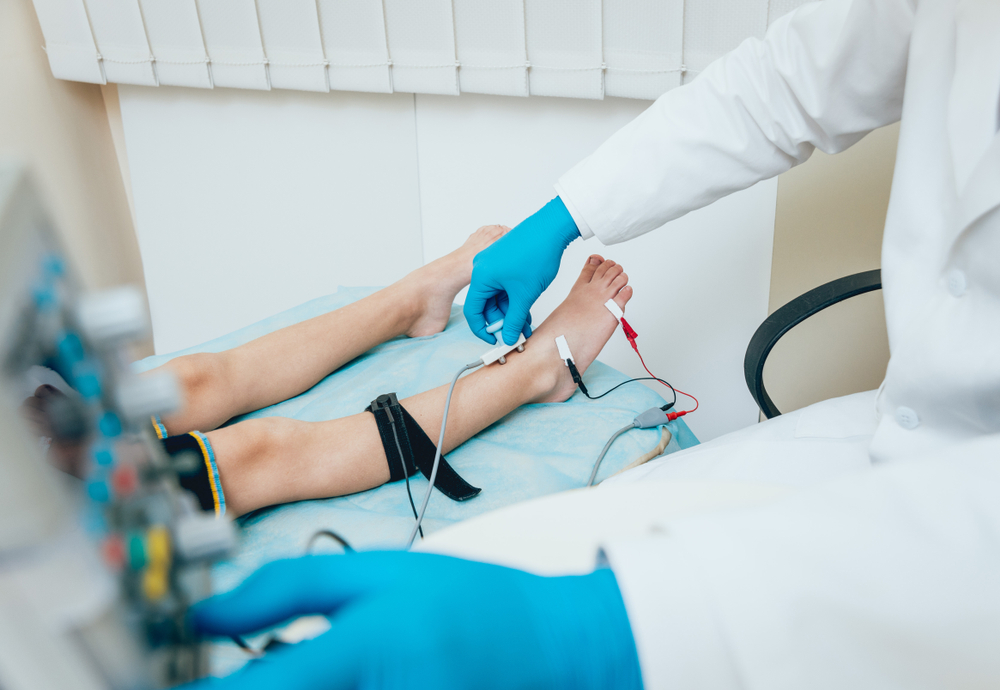
New York:
Florida:
Support